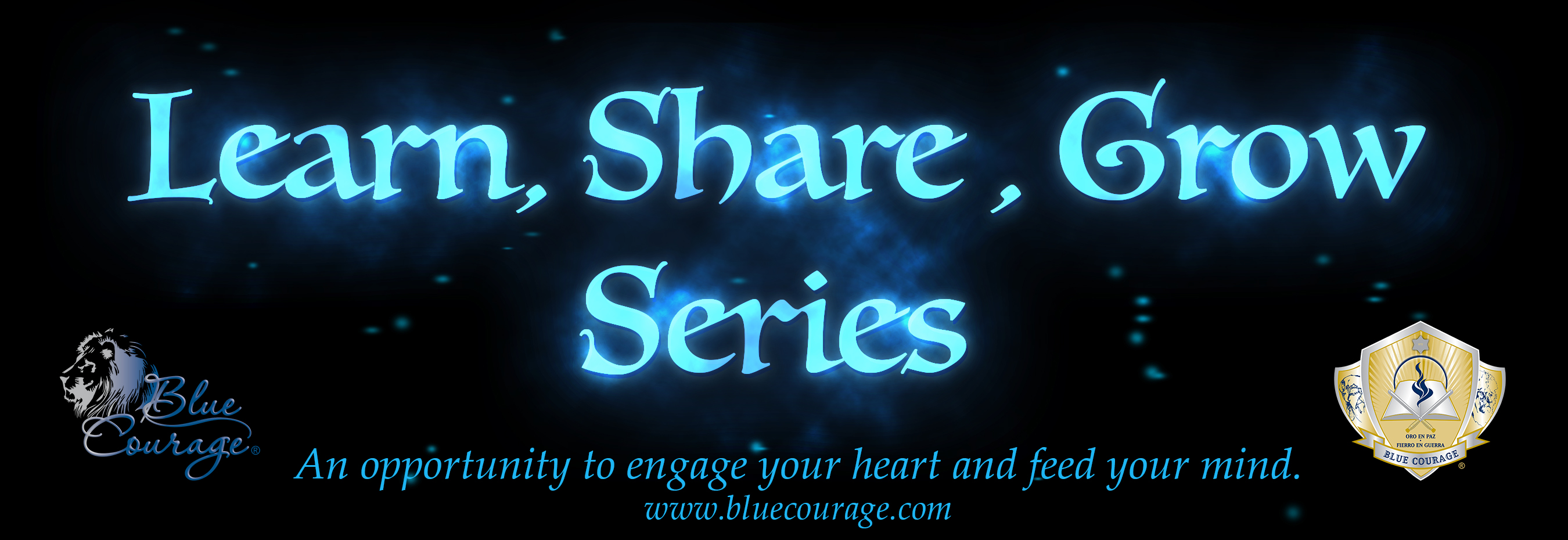Learn, Share, Grow - Reducing Stress with Breathing

December 6, 2021
Below is a lesson from Harvard Business Review on why breathing is effective at reducing stress, as well as our key learnings.
The Blue Courage team is dedicated to continual learning and growth. We have adopted a concept from Simon Sinek’s Start With Why team called “Learn, Share, Grow”. We are constantly finding great articles, videos, and readings that have so much learning. As we learn new and great things, this new knowledge should be shared for everyone to then grow from.
Research: Why Breathing Is So Effective at Reducing Stress
by Emma Seppälä , Christina Bradley and Michael R. Goldstein
September 29, 2020
When U.S. Marine Corp Officer Jake D.’s vehicle drove over an explosive device in Afghanistan, he looked down to see his legs almost completely severed below the knee. At that moment, he remembered a breathing exercise he had learned in a book for young officers. Thanks to that exercise, he was able to stay calm enough to check on his men, give orders to call for help, tourniquet his own legs, and remember to prop them up before falling unconscious. Later, he was told that had he not done so, he would have bled to death.
If a simple breathing exercise could help Jake under such extreme duress, similar techniques can certainly help the rest of us with our more common workplace stresses. The combination of the Covid-19 pandemic and battles for social justice have only exacerbated the anxiety that many of us feel every day, and studies show that this stress is interfering with our ability to do our best work. But with the right breathing exercises, you can learn to handle your stress and manage negative emotions.
In two recently published studies, we explored several different techniques and found that a breathing exercise was most effective for both immediate and long-term stress reduction.
Continue reading here.
Key Learnings:
- A breathing exercise was most effective for both immediate and long-term stress reduction
- Yale research team of impact of 3 well-being interventions:
- SKY Breath Meditation - a comprehensive series of breathing and meditation exercise learned over several days - designed to induce calm and resilience.
- Participants experienced the greatest mental health, social connectedness, positive emotions, stress level, depression and mindfulness benefits.
- Mindfulness-Based Stress Reduction - a meditation technique - you train yourself to be aware of each moment in a non-judgmental way
- Foundations of Emotional Intelligence - teaches techniques to improve emotional awareness and regulation
- University of Arizona Study - SKY Breath Meditation vs. conventional, cognitive strategies for stress management (how to change your thoughts about stress)
- Both rated high by participants and both produced significant increases in social connectedness. SKY Breathing was more beneficial in immediate impact on stress, mood, and conscientiousness - and even stronger 3 months later.
- Both rated high by participants and both produced significant increases in social connectedness. SKY Breathing was more beneficial in immediate impact on stress, mood, and conscientiousness - and even stronger 3 months later.
- In a study with veterans from Iraq and Afghanistan who struggled with trauma - SKY Breath Meditation normalized their anxiety levels after just one week and continued to experience the mental health benefits a full year later.
- When we are in a highly stressful state, the part of the brain responsible for rational thinking is impaired.
- Emotions are associated with different forms of breathing so changing how we breath can change how we feel.
- Joy - regular, deep and slow breaths
- Anxious or angry - irregular, short, fast, shallow breaths.
- Joy - regular, deep and slow breaths
- Changing the rhythm of your breath can signal relaxation, slowing your heart rate and stimulating the vagus nerve (rinds from brain stem to abdomen and part of the parasympathetic nervous system responsible for the body’s “test and digest” activities.)
- Change the ratio of your inhale to exhale. When you inhale, your heart rate speeds up, when you exhale it slows down. Breath in for a count of 4 and out for a count of 8 for a few minutes can calm your nervous system.
- Short breathing exercises can be effective in the moment. A comprehensive daily breathing protocol will train your nervous system for resilience over the long run.
- These techniques will help to sustain greater well-being and lower stress levels.
Stay connected with news and updates!
Join our mailing list to receive the latest news and updates from our team.
Don't worry, your information will not be shared.
We hate SPAM. We will never sell your information, for any reason.

